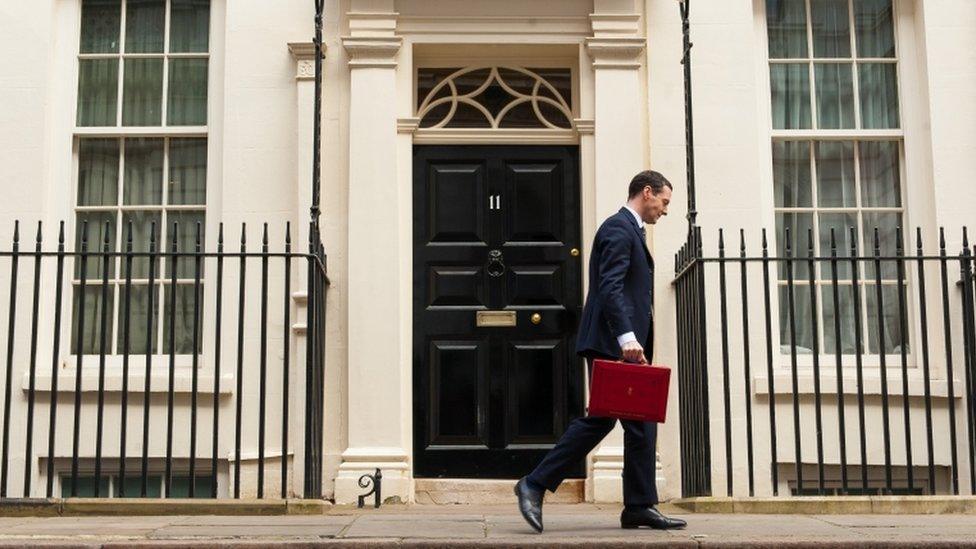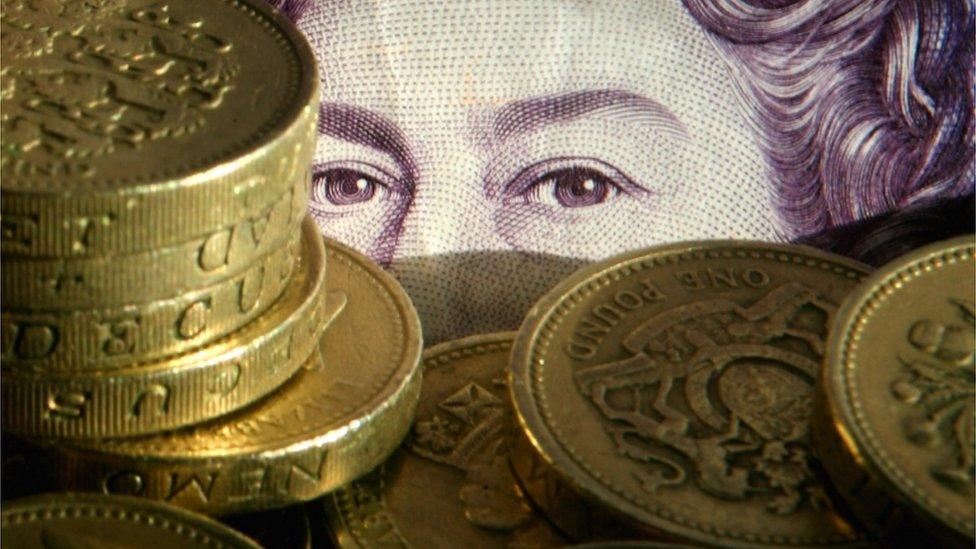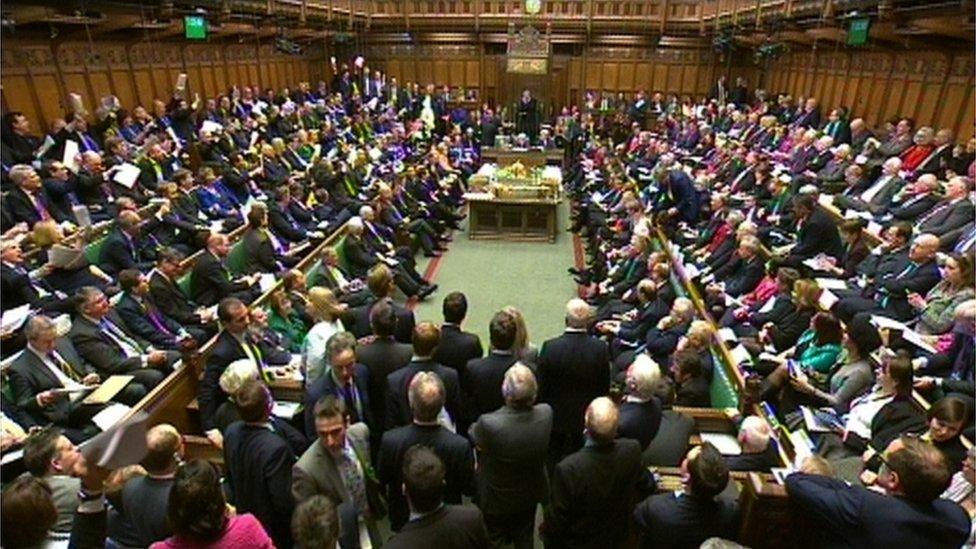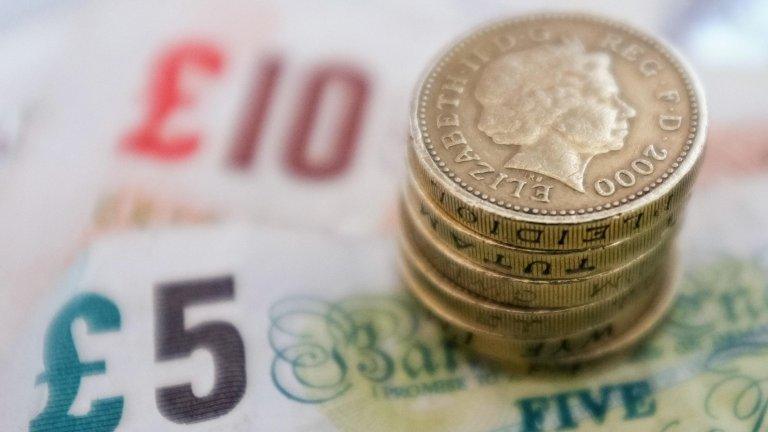Budget 2016: George Osborne's political balancing act
- Published

This will be George Osborne's eighth Budget
Like Sherlock Holmes, we must look in this Budget for the dogs that do not bark. Four years out from a general election, this is the time in the political cycle when chancellors can take unpopular decisions. A moment, perhaps, for a big reform to our pensions or taxation. Yet the mood music emerging from the Treasury is distinctly adagio.
For George Osborne finds himself constrained by the EU referendum, a restive Tory party, a sluggish global economy and leadership ambitions that are not without challenge.
The chancellor does not wish to anger the electorate unduly with significant tax rises just a few months before asking them to vote on Britain's membership of the EU.
He does not wish to test the patience of fractious Conservative MPs, many of whom would be more than happy to turn the Budget-enacting Finance Bill into a cause celebre for the EU exit cause.
He does not wish to make bold decisions that might look risky as the global economy stutters. And he does not wish to take decisions that might endanger his hopes of succeeding David Cameron.
Thus the political and economic parameters of this Budget - which, as a result, will be more cautious than it might have been.
Cuts v tax rises
Genuinely radical plans to overhaul pension tax relief have been put on hold for fear of upsetting middle and higher earners. Proposals to cut the 45p top rate of tax are said to have gone the same way.
There has been no significant announcement trailed in the Sunday newspapers. And Mr Osborne's pre-Budget set-piece interview on Sunday with Andrew Marr was notable more for the chancellor's thinly disguised gibes at his rival Boris Johnson than anything he had to say about this week's financial statement.
And yet this Budget cannot and will not be entirely without substance. There are some things Mr Osborne cannot put off for another day. Above all, he has to act to ensure that he will meet his target of achieving a surplus by 2019/20. This is a commitment that now has force of law.

The chancellor plans to achieve a Budget surplus by 2019/20
Under the latest figures, published in the autumn, the chancellor will narrowly meet his target by a mere £10bn. The independent Office for Budgetary Responsibility is expected to say that the British economy is smaller than the watchdog had expected it would be when it made that prediction. As such, the Treasury would get less than it had expected in tax revenues.
So that means Mr Osborne will have to consider either more spending cuts or tax rises. He told Andrew Marr he was planning a further £4bn of cuts, although some of these might be delayed until later in this Parliament. This will not be easy. He appears to have ruled out cutting pension tax relief. So he is looking at squeezing some disability benefits and taking a scythe to Whitehall once again.
The chancellor will also have to raise a few taxes. Increasing fuel duty would provoke squeals from Tory MPs. But if he cannot raise fuel duty when oil prices are as low as they are now then he will never do so. It is worth noting that the Tory manifesto in 2015 did not rule out raising fuel duty.
Mr Osborne could also raise insurance premium tax again, slyly making us all pay more to insure our cars and houses. He might see if he can cut some relief on employers' pension contributions. And he will raise a few million pounds by clamping down on people using so-called personal service companies to cut their income tax bills.

Mr Osborne will want to keep Conservative MPs on side
His task is to come up with enough tax increases to raise some decent cash without scaring his MPs so much that he faces possible defeat in the House of Commons where, we must never forget, the government has but a small majority.
For as well as making cuts to keep his deficit target on track, Mr Osborne also needs to act to keep his leadership hopes on track. He has been bruised by a string of recent set backs over tax credit cuts, Sunday trading rules and Google's modest tax bill.
Mr Osborne will want to use his Budget to restore some gloss to a reputation that has dulled in the eyes of many Tory MPs. So some tax cuts are expected, particularly to income tax thresholds and rates, to rally the Tory back benches. Those same MPs will also want to see Mr Osborne score some points against Jeremy Corbyn as the Labour leader makes his first response to a Budget, perhaps the hardest gig in British politics.
So these are constraints around which Mr Osborne has to operate this week. The biggest shadow is cast by the referendum campaign. If Britain votes to leave the EU, then this Budget will be instantly forgotten. But if Britain votes to stay, then the decisions announced this week could help shape not just the future of the economy but also who leads this country.
- Published14 March 2016

- Published14 March 2016

- Published12 March 2016

- Published11 March 2016

- Published13 March 2016
